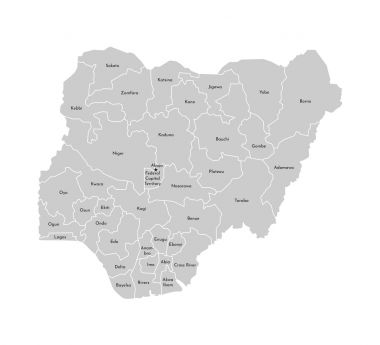Nigerian court affirms right to convert from Islam to Christianity

(CP) A court in northern Nigeria has granted a court order protecting an 18-year-old Christian convert from threats to her life by family members, a ruling that emphasizes the fundamental right to change religion, in this case, from Islam to Christianity.
Mary Olowe, not her real name, faced death threats from her father and brothers after converting to Christianity. Her mother helped her escape to safety in a Christian community before seeking legal protection through a restraining order.
According to the human rights group ADF International, a high court in Nigeria granted an order of perpetual injunction against her father and brothers.
"[T]he defendants are hereby restrained from threat and attempt on the life of the applicant following her decision to change from the practice of Islam to Christianity and also not to breach her fundamental rights as to the choice of her religion or thoughts," the order states.
No appeals were filed against the order.
"We are relieved that Mary has found protection from these credible threats and that the court recognized her fundamental right to convert from Islam to Christianity," ADF International Legal Counsel Sean Nelson said in a statement. "This is an important decision that we pray will help others facing threats to their lives only because they came to believe in Christ."
"No person should be persecuted, harassed, or threatened with death for their faith nor for converting from one faith to another," Nelson added. "Christian converts from Islam in Nigeria are often denied the ability to freely live out their faith because of targeted threats and attacks against them, even from their family members."
Olowe's case comes after a 25-year-old Christian student was beaten to death last year by her Muslim classmates in Nigeria's northwestern Sokoto state.
Deborah Emmanuel, a member of the Evangelical Church Winning All and a student at the Shehu Shagari College of Education, was killed in May 2022 after classmates claimed a WhatsApp message she sent to a classmate during an argument was blasphemous.
A Christian woman named Rhoda Ya'u Jatau was arrested in Bauchi state in May 2022 and was held incommunicado for more than four months on blasphemy charges for sharing a post on WhatsApp condemning Emmanuel's killing, Morning Star News reported at the time.
The persecution of Christians in Nigeria is particularly severe, with 90% of the over 5,600 Christians killed for their faith worldwide last year being Nigerian, according to persecution watchdog group Open Doors.
Christian converts from Islam, such as Mary, face significant social hostility.
Egregious laws in Nigeria, including blasphemy laws, systematically punish religious minorities, ADF International noted.
In its latest International Religious Freedom Report, the U.S. State Department noted a spike in deadly violence impacting both Christians and Muslims in Nigeria. The NGO Armed Conflict Location & Event Data Project reported there were 3,953 civilian deaths from violence across the country in 2022.
"There continued to be frequent violent incidents, particularly in the northern part of the country, affecting both Muslims and Christians, resulting in numerous deaths," the State Department's report on Nigeria said.
"Kidnappings and armed robbery by criminal gangs increased in the South as well as the North West, the South, and the South East. The international Christian organization Open Doors stated that terrorist groups, militant herdsmen, and criminal gangs were responsible for large numbers of fatalities, and Christians were particularly vulnerable."
In June 2022, gunmen stormed into St. Francis Catholic Church in the southwestern Ondo state and killed dozens.
Nigerian Christians and human rights groups have voiced concerns for years that the violence carried out against predominantly Christian farming communities in the Middle Belt states by radicalized herdsmen has reached genocidal levels as thousands have been killed in recent years.
However, the Nigerian government has rejected claims that the violence is influenced by religion and insists it's part of decades-old farmer-herder clashes. Additionally, data cited by the U.S. State Department suggests that violence targeting Christians accounts for a small fraction of the killings.











